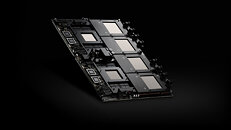
NVIDIA Bringing Cybersecurity Platform to Every AI Factory
As enterprises increasingly adopt AI, securing AI factories—where complex, agentic workflows are executed—has never been more critical. NVIDIA is bringing runtime cybersecurity to every AI factory with a new NVIDIA DOCA software framework, part of the NVIDIA cybersecurity AI platform. Running on the NVIDIA BlueField networking platform, NVIDIA DOCA Argus operates on every node to immediately detect and respond to attacks on AI workloads, integrating seamlessly with enterprise security systems to deliver instant threat insights. The DOCA Argus framework provides runtime threat detection by using advanced memory forensics to monitor threats in real time, delivering detection speeds up to 1,000x faster than existing agentless solutions—without impacting system performance.
Unlike conventional tools, Argus runs independently of the host, requiring no agents, integration or reliance on host-based resources. This agentless, zero-overhead design enhances system efficiency and ensures resilient security in any AI compute environment, including containerized and multi-tenant infrastructures. By operating outside the host, Argus remains invisible to attackers—even in the event of a system compromise. Cybersecurity professionals can seamlessly integrate the framework with their SIEM, SOAR and XDR security platforms, enabling continuous monitoring and automated threat mitigation and extending their existing cybersecurity capabilities for AI infrastructure.
Unlike conventional tools, Argus runs independently of the host, requiring no agents, integration or reliance on host-based resources. This agentless, zero-overhead design enhances system efficiency and ensures resilient security in any AI compute environment, including containerized and multi-tenant infrastructures. By operating outside the host, Argus remains invisible to attackers—even in the event of a system compromise. Cybersecurity professionals can seamlessly integrate the framework with their SIEM, SOAR and XDR security platforms, enabling continuous monitoring and automated threat mitigation and extending their existing cybersecurity capabilities for AI infrastructure.












































































